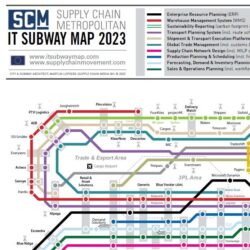Limited use of technology for ESG reporting

Executives at companies Europe-wide are searching for the best way to implement ESG reporting within their operations. Yet according to a recent survey across several European countries, considerably less than half of all companies use technology for this purpose.
Environmental, social and governance (ESG) criteria apply to any of a company’s activities that may impact on society or the environment. Diligent, a provider of SaaS solutions in the areas of modern governance, risk, compliance, audit and ESG, conducted research into ESG reporting in the Netherlands, Germany, France and Spain. It revealed major differences in approaches within all these countries in terms of responsibilities and the frameworks and technologies used.
Increasing pressure from the EU
“With increasing pressure from the EU to start auditing the reporting, companies must quickly get their act together and achieve uniformity in their reporting,” says Hajo Jansen, Regional Vice President Western Europe at Diligent. According to Jansen, some companies place responsibility with an ESG manager, while others have a sustainability committee. Meanwhile, some businesses have developed their own framework for ESG reporting, whereas others work with various combinations of GRI standards, SASB, CDP, scientific standards and UN Global Compact principles.
Similar picture Europe-wide
When asked how they ensure ESG data is as accurate as their financial data, only eight of the 23 Dutch companies surveyed responded that they use technology that streamlines data collection and enables verifiable reporting. Most of the other respondents rely on a committee or a manager, without using technology. A few even admitted that they have absolutely no resources to safeguard any level of data quality.
The same survey was conducted in Germany, France and Spain, with similar results in terms of technology usage. For internal ESG data, only nine out of 25 companies use technology in Germany, ten out of 23 in France and nine out of 25 in Spain. When it comes to continuous monitoring of ESG data from third parties such as suppliers, nine of the Dutch and French companies surveyed use technology and ten of the businesses in Spain and Germany.
Software for ‘audit-ready’ ESG reports
“Based on what we hear from our customers, senior executives within most publicly listed companies require clear and accurate ESG data,” Jansen comments. “Given the importance of ESG, it’s surprising that not more companies are using technologies to monitor both their own and third-party data. Software can help organizations to ensure that their ESG statistics are complete and truthful, while also reducing manual work.”
According to Jansen, Diligent’s solution results in time savings of 60-80% when collecting, validating and sharing emissions data. “Thanks to dedicated software solutions, directors can be certain that the information they receive is accurate and audit-ready,” Jansen concludes.










